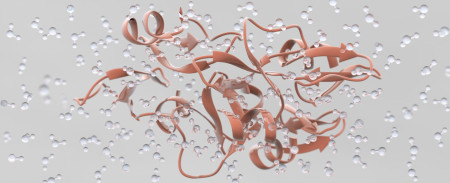Back-to-“natural”-basics demanded by consumers
The cosmetics market has undergone renewed growth since 2021, in particular in the categories of luxury products and dermocosmetics. According to experts, natural and clean formulations, as well as solutions that include scientific progress to combine efficacy, sustainability, transparency and safety in their product offers have been the principal drivers of the skin care market dynamics.
The undeniable success of Clean Beauty has led to the substantial increase in the appearance of new brand names, and the myriad “natural beauty” offers could partly explain the increased awareness of consumers for the ingredients of their formulas. The fear of “cleanwashing” has been an important motivation for consumers to cultivate their “INCI culture” and has also awakened new attractions for certain reference molecules.
The involvement of the digital universe and social media
It is no surprise that the increased popularity of beauty-oriented to ingredients has coincided with the appearance of educational content on social media.
TikTok and other interactive platforms are currently saturated with “skinfluencers” who share their knowledge about cosmetics and their recommendations for brands and ingredients.
On the receiving end, consumers of cosmetics are becoming “skintellectuals”: they better understand their care needs, customize their treatment regimens and seek ingredients that do a precise job rather than a product making a variety of widespread promises.
The surge of beauty-oriented around “tested & approved” ingredients
Cosmetic ingredients now play a crucial role in consumers’ shopping and purchasing . Among these reference molecules are hyaluronic acid, retinol, glycolic or salicylic acid, vitamins and peptides.
Peptides have been validated by both the scientific community and consumers and are now must-haves in many cosmetic formulas. Their mechanisms of action in many physiological processes make peptides attractive for a variety of indications related to the skin: antioxidant, anti-inflammatory, healing, anti-wrinkles, etc. According to Mintel, 50% of Chinese women associate oligopeptides with anti-aging benefits.
Today, most peptides on the cosmetics market are synthetic. Even so, nature overflows with plants and microorganisms that are rich in peptides.
Some co-products obtained after the transformation of fruits or grains in the agri-food industry have significant importance for the universe of beauty as a result of their high content in peptides. This optimization of value enables the development of new active ingredients, at the same time as responding to consumer expectations in terms of sustainability.
Their multi-target action explains why they are now among the highly promising active compounds for an overall anti-aging strategy.
SILAB solutions
Progress to gentler alternatives to reference molecules is continually gaining ground. SILAB responds to consumer expectations in terms of naturality, safety and proven efficacy by proposing natural ingredients of plant or biotechnological origin without an irritant effect for the skin.
These active ingredients containing a high natural origin content are available in aqueous solution and are all easy to formulate. They are compatible with daily use, thereby providing solutions for all skin types, even the most sensitive, by offering cosmetic benefits similar to those of reference molecules. They also comply with biodiversity regulations and with international cosmetics regulations.
SILAB proposes EXFOLACTIVE®, an exfoliating active ingredient obtained from an organic supply chain of nopal that reactivates the endogenous processes of desquamation. .
It stimulates proteolysis of the constitutive proteins of epidermal cohesion, enabling the elimination of dead cells on the surface. This exfoliating action restores an equilibrium between proliferation and desquamation to the epidermis.
The results of a comparative study showed that the cosmetic benefits of EXFOLACTIVE® are comparable to glycolic acid on Caucasian skin and to salicylic acid on Asian skin, with no side effects. The skin is smooth and hydrated and the complexion is more radiant and uniform.
Composed of natural biopeptides 95% purified, obtained from a co-product of cranberries, PEPTILIUM® is a natural premium active ingredient for anti-aging care.
The study of PEPTILIUM® mechanism of action and of retinol in vitro has shown that several genes, in particular those involving the extracellular matrix, are regulated in a similar manner.
After the application of PEPTILIUM®, the expression of 81% of deregulated genes is restored to normal levels, whereas retinol restores only 31%.
In addition, PEPTILIUM® has a more rapid effect than retinol on complexion radiance and the reduction of crow’s feet wrinkles.
Its action on the barrier function is positive, while retinol leads to a substantial increase in transepidermal water loss.
In addition, retinol treatment is associated with side effects such as irritations and discomfort, manifestations not seen when treating with PEPTILIUM®.
An innovative study of the hygroscopic potential of Apiogalacturonans (APG) was conducted by molecular modeling in a partnership between SILAB and the University of Reims Champagne-Ardenne.
The results of the simulation showed that on average 23 water molecules are in contact with each constitutive APG residue. These results show an unimaginable hygroscopic potential that is twice as high as that of hyaluronic acid.
Predictions were then confirmed in vivo, using Raman microspectro-scopy. APG absorb and retain water more deeply in the skin and for longer times than hyaluronic acid.
APIOSKIN® is a natural replumping active ingredient with exceptional immediate and long-lasting hydrating properties, purified in APG from Spirodela polyrhiza. Its smoothing and complexion radiance boosting effects embellish dehydrated skin and redefine facial volumes.
Do not hesitate to contact SILAB’s Area sales managers for additional information on other alternative offers to reference molecules.







